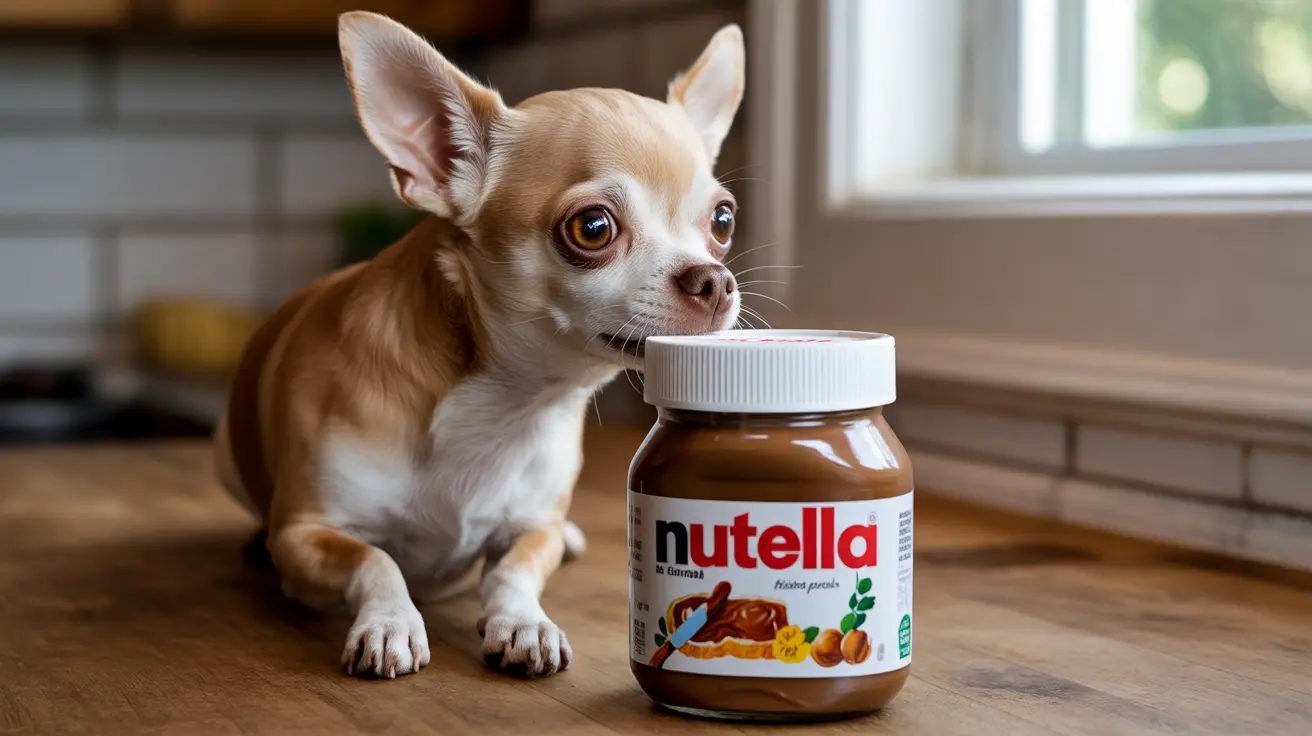The Hidden Dangers of Nutella for Dogs
If you're a dog owner who loves Nutella, you might wonder about sharing this sweet treat with your furry friend. However, Nutella can be dangerous for dogs due to several harmful ingredients. While not as toxic as pure chocolate, this popular hazelnut spread contains components that could seriously affect your dog's health.
Understanding why Nutella is bad for dogs and what to do if your pet consumes it can help prevent potential health emergencies. Let's explore the risks and necessary actions to keep your four-legged friend safe.
Harmful Ingredients in Nutella
Cocoa and Theobromine
The cocoa in Nutella contains theobromine, a substance toxic to dogs. While Nutella contains less cocoa than pure chocolate (about 7.4%), even this amount can be dangerous, especially for smaller dogs. Dogs process theobromine much more slowly than humans, allowing it to build up to toxic levels in their system.
Sugar and Fats
Nutella's high sugar and fat content can lead to several health issues in dogs, including:
- Obesity
- Dental problems
- Pancreatitis (inflammation of the pancreas)
- Diabetes risks
- Digestive upset
Hazelnuts and Other Components
While hazelnuts aren't toxic to dogs, they can cause:
- Gastrointestinal distress
- Choking hazards, especially in small dogs
- Potential allergic reactions
- Increased risk of pancreatitis due to high fat content
Signs Your Dog Has Eaten Nutella
Watch for these symptoms if your dog consumes Nutella:
- Vomiting and diarrhea
- Increased thirst and urination
- Restlessness or agitation
- Elevated heart rate
- Muscle tremors
- Lethargy
- In severe cases, seizures
What to Do If Your Dog Eats Nutella
Immediate Actions
- Determine how much Nutella was consumed
- Note when the consumption occurred
- Contact your veterinarian immediately
- Save the product packaging for reference
- Monitor your dog closely for symptoms
Veterinary Treatment
Your vet may recommend:
- Induced vomiting (if caught early)
- Activated charcoal administration
- IV fluid therapy
- Medication for symptom management
- Monitoring for complications
Prevention Tips
To keep your dog safe:
- Store Nutella and similar products out of reach
- Use secure containers and cabinet locks
- Inform family members and guests not to share human treats
- Keep emergency vet contact information readily available
- Choose dog-specific treats instead
Frequently Asked Questions
Is Nutella toxic to dogs, and what ingredients make it harmful?
Yes, Nutella can be toxic to dogs primarily due to its cocoa content, which contains theobromine. The high sugar and fat content can also cause serious health issues like pancreatitis. While not as dangerous as pure chocolate, Nutella should never be fed to dogs.
What are the symptoms of Nutella or chocolate poisoning in dogs?
Symptoms include vomiting, diarrhea, increased thirst, restlessness, elevated heart rate, muscle tremors, and in severe cases, seizures. These typically appear within 2-12 hours after consumption.
How much Nutella is dangerous for my dog to eat?
Even small amounts can be harmful, especially for small dogs. The risk increases with the amount consumed and decreases with the dog's size. Any intentional feeding of Nutella should be avoided.
What should I do if my dog accidentally eats Nutella?
Contact your veterinarian immediately, note the amount consumed and time of consumption, and watch for symptoms. Don't induce vomiting without veterinary guidance.
Can hazelnuts or sugar in Nutella cause health problems for dogs?
Yes, hazelnuts can cause choking and digestive issues, while the high sugar content can lead to obesity, dental problems, and contribute to diabetes. The combination of fats and sugars can also trigger pancreatitis.
Conclusion
While Nutella might be a beloved treat for humans, it's clearly dangerous for dogs. The combination of cocoa, sugar, and high-fat content makes it unsuitable and potentially harmful for canine consumption. Always keep Nutella and similar products safely away from your pets, and contact your veterinarian immediately if accidental ingestion occurs.






